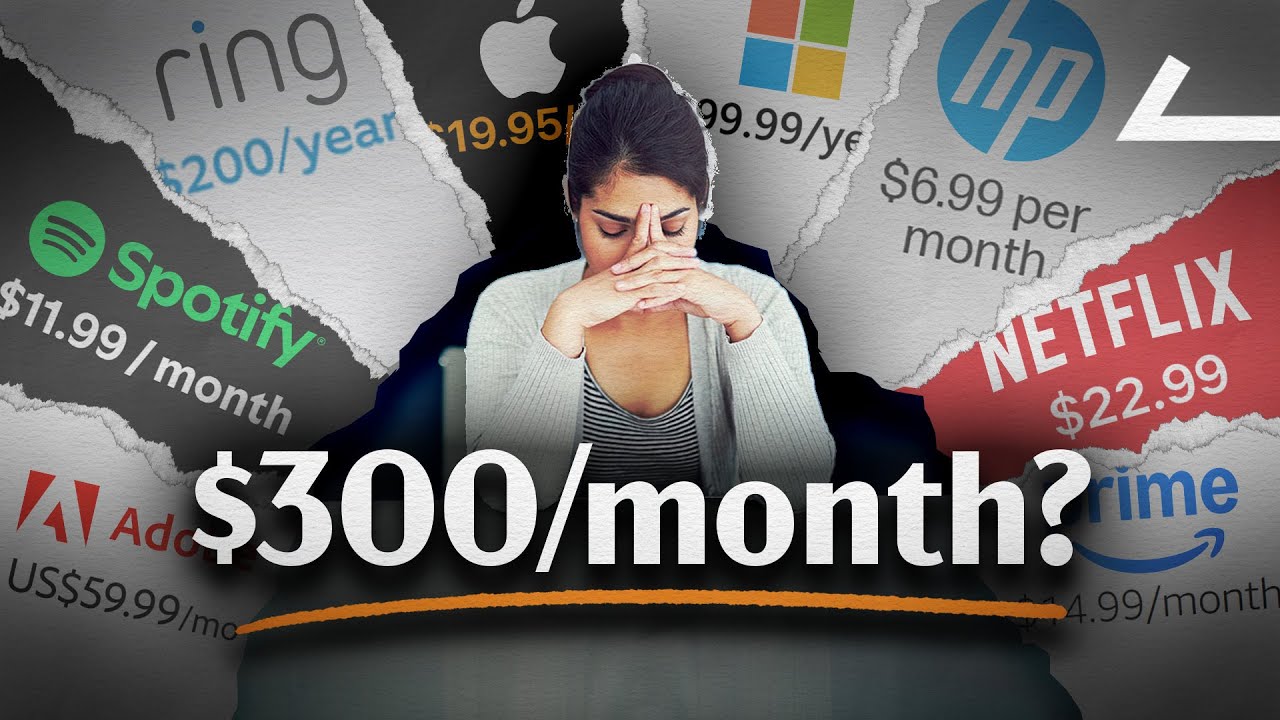the biggest reason for subscriptions is. 1. consumer laws don’t protect it. and 2. you can quit your job and don’t have to be actually productive and work for a living because your users will just keep on “buying” the product every month indefinitely. and finally 3. subscription basically gives you monopoly in any given area you host it; because the user will usually not look or even have the means to look for options or alternatives once they have already tied a percentage of their monthly income to a company for the software or service they provide - as wallets got spread thinner and thinner until they, now, are entirely swallowed by subscriptions.
the only people arguing in favor of subscriptions are those who don’t want to work for a living while still taking advantage of the capitalist system.
I worked at Amazon and the head of Ring said their best customers were people who bought a subscription and then put the camera in a drawer and forgot about it. They don’t even want to provide you a service. They want you to absentmindedly give them money every month because you forgot to cancel.
Fine, but this is on the buyer not on the seller.
I mean, if you buy a subscription to something and then don’t use it (or forgot to cancel while not using it) is not really a seller fail: you would have wasted your money even you’d have bought it without a subscription.I get subscriptions are (mostly) bad, but it is not always a seller fault and the buyer should be aware of what he is doing or spending money.
I get what you’re saying but the forgetful customer is explicitly what they said they want, which is dumb any way you look at it. Many times you’re forced into signing up for subscription, or coerced under the guise of a free trial. Now this wouldn’t be as bad if they came back and were like, “hey we see you haven’t used our service in a while, do you still need it?” rather than just leeching money from the user. The system is designed to purposely allow the user to make these errors and that’s wrong any way you want to shape it.
I get what you’re saying but the forgetful customer is explicitly what they said they want, which is dumb any way you look at it.
I don’t disagree on that.
Many times you’re forced into signing up for subscription, or coerced under the guise of a free trial. Now this wouldn’t be as bad if they came back and were like, “hey we see you haven’t used our service in a while, do you still need it?”
Maybe, but at this point I doubt that a forgetful customer would pay attention to it. What would really make the difference would be to renew the subscription explicitly. This way you could be forced to sign for a false free trial, but you would also need to confirm a subsequent subscription.
rather than just leeching money from the user. The system is designed to purposely allow the user to make these errors and that’s wrong any way you want to shape it.
Yes, this is another way to see it. But the solution in my opinion is not to eliminate the concept of subscriptions. The solution is to educate the customer.
Found this out when I wanted a decent journaling app for Android. All the most popular ones have subscription tiers that amount to hundreds of dollar over just a few years… for a fucking journal app? what the hell!
Not only that but they can train their AI’s on all their subscribers’ journal entries. Check F-Droid.org for some free, privacy respecting FLOSS journaling apps.
There is this one app on there called PTO (plain text organizer) that is pretty interesting. It basically just gives you a new plaintext file each day to journal on
Definitely feel ya there. I highly recommend Obsidian or Joplin. Not sure what features you’re looking for, but I’ve found Obsidian refreshingly simple. Aso nice knowing that it’s just markdown files on my device that can’t be sold as data.
“If buying isn’t owning, pirating isn’t stealing.”
I heard this before and it is becoming more true each day.
Next up, (cell) phone plans.
(though fuck landlines phones too)
we need some kind of “subscribers bill of rights” both to discourage and to check the stupid business models.
It won’t make any difference. There’s a gamers Bill of Rights that nobody remembers. It was produced by the owner of a company that now ignores that it ever existed.
I’m not sure what the logical outcome of this escalating arms race of enshittification will be, but as a career Sysadmin I’ve been able to avoid a LOT of this bullshit through self hosting, which is something a (Non-tech nerd) layman isn’t going to bother with, for as long as existing products (and their subscriptions) are still within “tolerable” levels.
But the thing is, a lot of the convenience with computing devices today didn’t exist in the 90’s, when it was more common for young normies to have what would be considered above average computer technical skills today.
When the entire market turns into inescapable subscriptions, the market for a non-technical friendly appliance box, like Synology came close to doing, shows up to corner the market on hardware you can own and run your own shit on with minimal headaches and no subscriptions.
To the extent you are able to (particularly if trying to stay legal).
So for streaming content, much of that isn’t available to ‘buy’ at all. Even for the stuff you can “buy”, technically speaking in many jurisdictions it’s not legal to be able to rip your DVD or Blu Rays or remove DRM from a digital download.
For certain software, on-premise editions have been abolished or priced into the stratosphere because they don’t want that market to exist anymore. Some of that software has competent alternatives, but sometimes your choice is dictated by your clients and partners, and opting for a less compatible or merely perceived as less compatible option is a non starter. Even among on-premise editions, a lot of software vendors have switched to still having it by subscription as the only legal way to keep using it. Again, maybe for those software you can get away by breaking the law as a workaround, but legally…
This is of course assuming the conversation narrowly applies to software type things. Everyone is also rebranding ‘leasing’ as ‘as a service’ and are copying much of the software playbook, for the same reasons, including making purchase of equipment more expensive to steer people toward the ‘as a service’ revenue strategy.
Then going beyond the ‘tech’ industry, it’s getting really hard to buy a house rather than rent it from some company that has been pouring money into acquiring all the available real estate.
the only things in life im happy owning is my home, my transportation and my informatics






